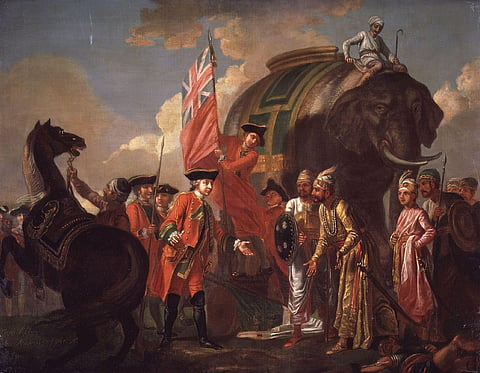Not remembering Plassey
Two hundred and fifty years ago, on 23 June 1757, the last sovereign nawab of Bengal (which included present-day Bihar, West Bengal, Orissa and Bangladesh) was defeated on the banks of the Ganga by an army under the command of the British East India Company's Colonel Robert Clive. The battle came to be known as the Battle of Plassey, after the mango orchard of Palashi, near Murshidabad, on which it was fought. Clive's victory and the subsequent annexation of Bengal allowed the East India Company to strengthen its military might across India, paving the way for it to make massive economic gains – some would say plunder.
In spite of the importance of this turning point in the region's history, however, media pundits and historians throughout the Subcontinent showed little interest this past June in remembering the death of Nawab Mirza Muhammad Sirajuddaula (see pic), of his commanders Mir Madan and Mohanlal, or of the hundreds of soldiers who lost their lives on the day that British colonialism established its first territorial foothold on Southasian soil. Even as academics queued up in hope of publishing their essays on the mutinous events of 1857, which took place a full 100 years after the battle, the memorial in Plassey remained largely neglected. No government official deigned to lay a wreath here.

